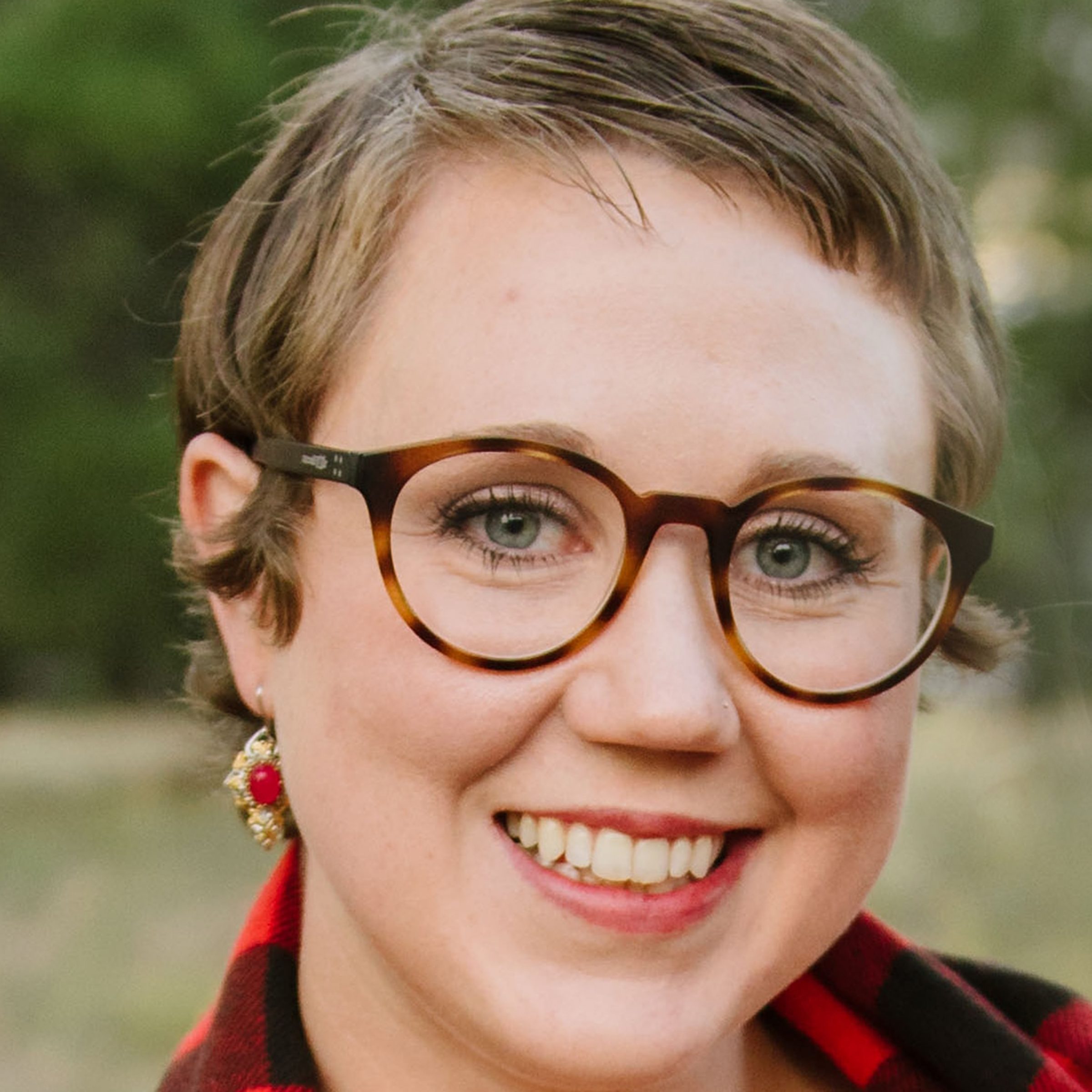Student Spotlight: Shaylynne Shuler

Having grown up in a highly religious and conservative area, Shaylynne Shuler witnessed LGBTQ people around her struggling with mental health, suicidality, and homelessness due to religiously-based parental and familial rejection.
Shuler saw one of her closest friends lose his family, community, and almost lose his life because of religion. The experience was shocking to her, and it ultimately changed the course of her future work.
“I didn’t understand how a religion that prides itself on family and love could justify the pain and literal bloodshed they were inflicting on their LGBTQ loved ones,” Shuler said. “Seeing this pattern of religiously-based rejection play out over and over again, radicalized me. Living as your authentic self should be celebrated, not mourned and punished by the people you love most.”
Now, Shuler is in the last phase of her doctorate in interdisciplinary health. For her dissertation, she has examined how institutional, community, and environmental factors affect the mental health and wellbeing of LGBTQ young adults attending college in a highly non-affirming, religious area of the United States.
Using a mixed method design, her work shows how communities surrounding universities impact both the perceived climate and the availability of resources for LGBTQ college students.
“Most interesting, perhaps, was finding that while a university may have multiple markers of inclusion, including anti-discrimination policies, a physical inclusion center, and resources for LGBTQ students, the socio-political climate of the surrounding community moderates the actual accessibility of those resources, and perceptions of safety both on and off campus,” Shuler said. “Universities with a surrounding community containing a large, non-affirming religious population, while seeming to be accepting and inclusive on the outside, tended to have fewer accessible campus resources for LGBTQ students as well as an LGBTQ student population more likely to report high levels of depression, anxiety, and experiences of discrimination.”
Shuler said that despite state level policies of protection, LGBTQ resources can be difficult to access and are not well promoted in some areas of the country.
“It is like a speak-easy,” she said. “You have to know the right people to access resources.”
Working through university as a first gen student
Shuler completed a trifecta of undergraduate degrees from Weber State University simultaneously—anthropology, microbiology and integrative studies.
“I didn’t realize what I was doing was always interdisciplinary,” she said. “That is why I got three bachelor’s. Being here [at NAU] and having this interdisciplinary health program just begin, I felt like the program was built for me — like it was fate.”
She and her husband, Dustin, and three children (now four) moved to Flagstaff from Salt Lake City, Utah, when she was accepted into Northern Arizona University’s master’s program in anthropology.
She said without Dustin’s emotional support and his willingness to stay home and take turns as the stay-at-home parent as they finished several degrees between them (he also has a Master of Business Administration and Music Theory), it would not have been possible.
“He is the kind of person who you want to have in your corner,” she said. “He believes that I can do these things and he shows up.”
Shuler also completed a graduate certificate in Women’s and Gender Studies from NAU and a graduate certificate through the Institute for Translational Research Education (ITRE) in Adolescent Drug Abuse through the University of South Florida and NAU’s Center for Health Equity Research (CHER). There, she met Regents’ Professor Julie A. Baldwin, director of CHER, who is one of the multiple principal investigators of the institute.
“She is the nicest person you would ever meet,” Shuler said. “She builds bridges with everyone. She has created a great culture here, and it is unique to have such an inclusive culture.”
Shortly after Shuler began her doctoral program in interdisciplinary health, CHER hired Amanda Pollitt, assistant professor in CHER and NAU’s Department of Health Sciences, who conducts research on LGBTQ mental and physical health. Pollitt became her co-advisor.
Shuler said she already knew Pollitt’s work and “sort of academically stalked her” before the assistant professor came to NAU.
“All of these people, that I had read in books sitting on my shelf she had met, including Stephen Russell, who was her advisor,” Shuler said. “She does the kind of work I want to do. She has been the most amazing mentor ever.”
Pollitt also sees Shuler’s work as an invaluable resource that will make a difference in her field of study.
“As her primary advisor, Shay has continuously impressed me with her strong communication skills, interdisciplinary thinking, and passion for health equity,” Pollitt said. “By focusing on religiosity and spirituality in the lives of LGBTQ people, Shay’s work deeply informs our understandings of how gender, sexuality, and policy impact the mental health of this population.”
Shuler also credits her success at NAU to Michelle Anne Parsons, associate professor, in NAU’s Department of Anthropology.
“She always made me believe I could do it,” Shuler said.
She said that after she graduates, she would like to be a health disparities researcher or work with a nonprofit that specifically continues to do LGBTQ research and policy change.
She said that her family is already excited for a new adventure.
“I am hoping that the work I do, and all the hard work I put it in even get to this point, will inspire my children — seeing us do hard things and improving the world around them,” she said.